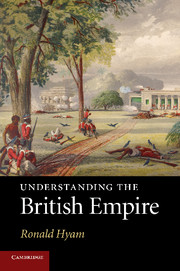Book contents
- Frontmatter
- Contents
- List of plates
- List of figures
- List of maps
- List of tables
- Preface
- Acknowledgements
- List of abbreviations
- Introduction: perspectives, policies, and people
- I Dynamics: geopolitics and economics
- II Ethics and religion
- III Bureaucracy and policy-making
- IV Great men
- 10 Winston Churchill's first years in ministerial office, 1905–1911
- 11 Churchill and the colonial empire
- 12 Smuts in context: Britain and South Africa
- V Sexuality
- VI Imperial historians
- Published writings of RH on imperial history
- Index
12 - Smuts in context: Britain and South Africa
Published online by Cambridge University Press: 05 August 2012
- Frontmatter
- Contents
- List of plates
- List of figures
- List of maps
- List of tables
- Preface
- Acknowledgements
- List of abbreviations
- Introduction: perspectives, policies, and people
- I Dynamics: geopolitics and economics
- II Ethics and religion
- III Bureaucracy and policy-making
- IV Great men
- 10 Winston Churchill's first years in ministerial office, 1905–1911
- 11 Churchill and the colonial empire
- 12 Smuts in context: Britain and South Africa
- V Sexuality
- VI Imperial historians
- Published writings of RH on imperial history
- Index
Summary
[This chapter is expanded from a paper first published (under the title ‘South Africa, Cambridge, and Commonwealth History’) in The Round Table: the Commonwealth Journal of International Affairs, vol. 90, no. 360 (2001), which in turn was based upon a modified version of the Smuts Distinguished Lecture, University of Cambridge, November 2000, delivered under the auspices of the Managers of the Smuts Memorial Fund, to commemorate the fiftieth anniversary of the death of Jan Christiaan Smuts – not an occasion for denigration.]
He was a man who raised the name of South Africa, with all its special … problems, to the highest rank of respect … among the freedom-loving nations of the world.
A noble and outstanding figure in his faithful and courageous support of his own countrymen when they seemed to be opposed by overwhelming forces … one of the most enlightened, courageous and noble-minded men … of the twentieth century.
No, these words are not a eulogy to Nelson Mandela. They were in fact spoken in the House of Commons by Churchill and Attlee respectively after the death on 11 September 1950 of Field Marshal Jan Christiaan Smuts, the only other South African leader of world stature besides Nelson Mandela. The general eagerness today to honour Mandela has its parallel in the adulation once accorded to Smuts.
- Type
- Chapter
- Information
- Understanding the British Empire , pp. 342 - 360Publisher: Cambridge University PressPrint publication year: 2010
- 1
- Cited by

